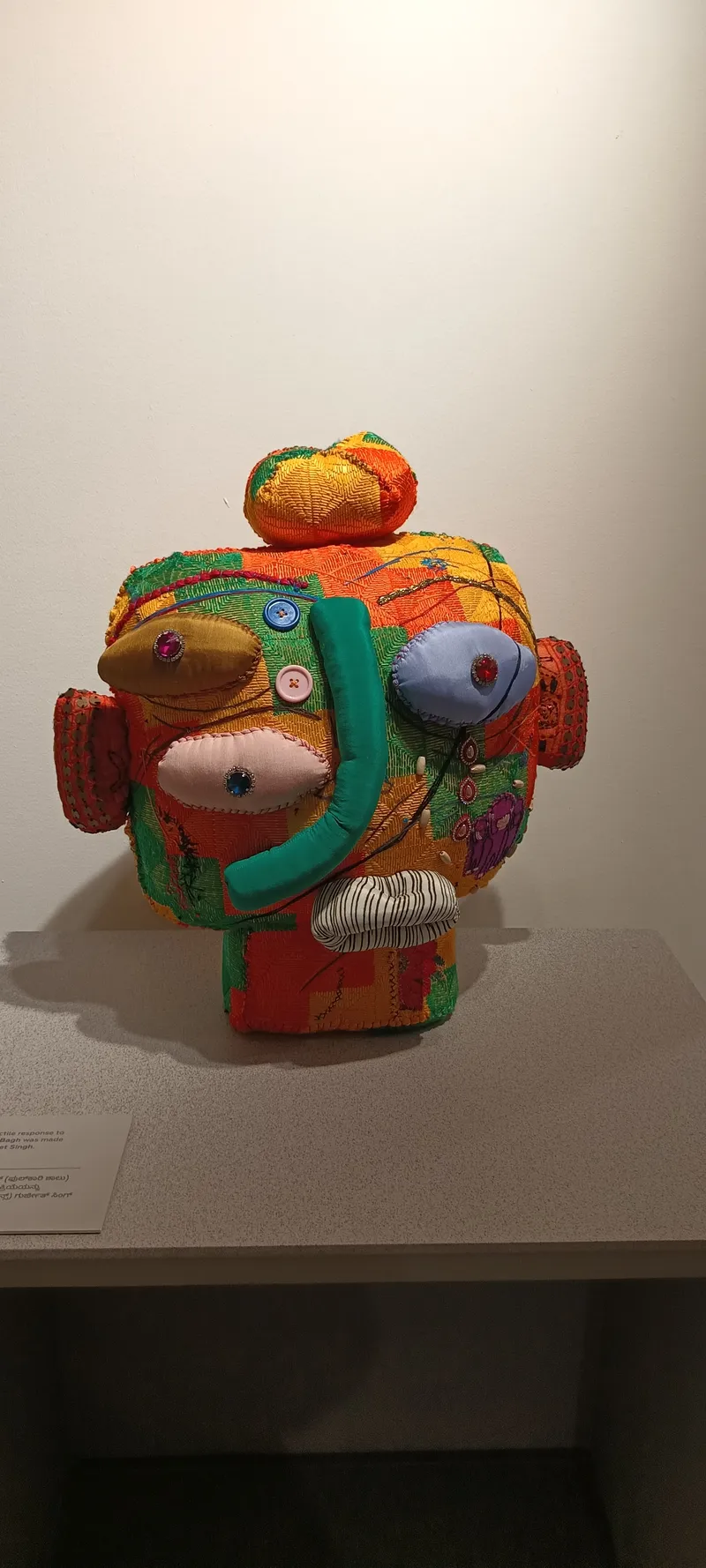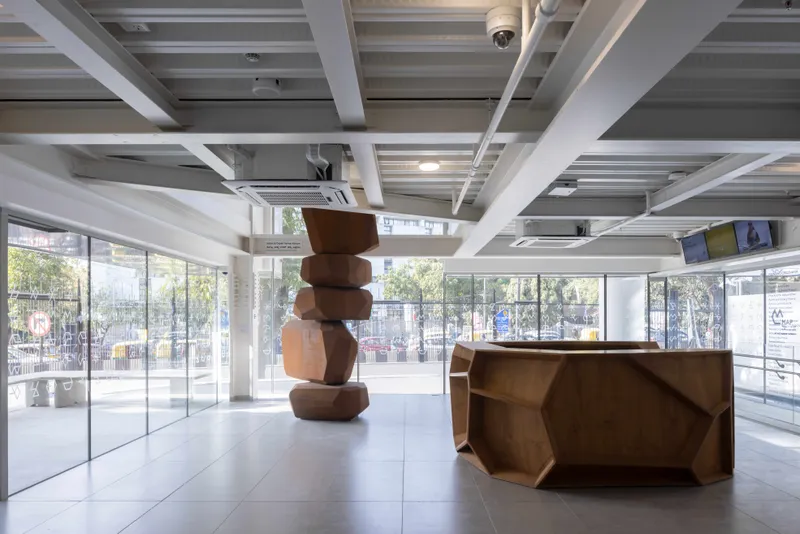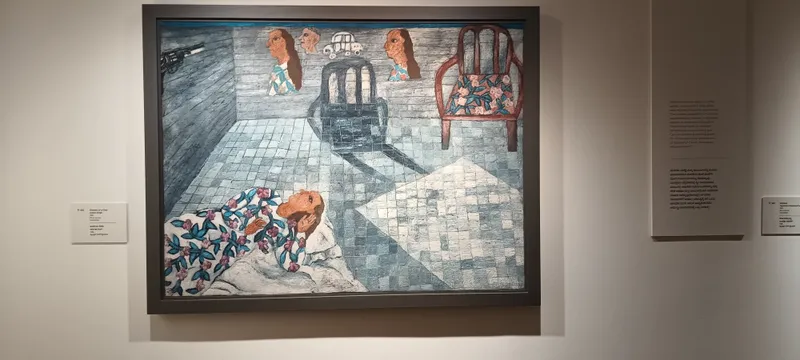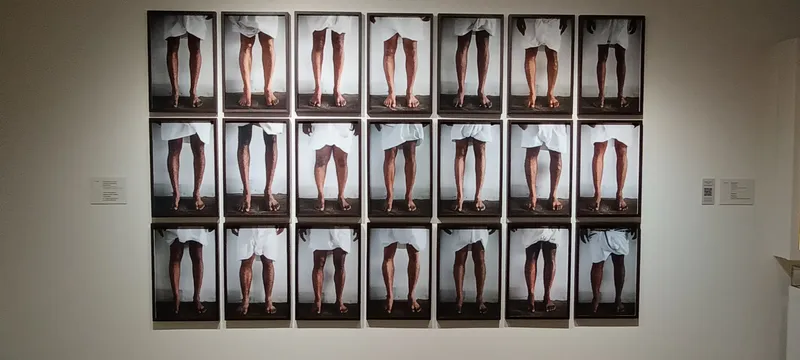Inside Museum of Art and Photography: A haven where art meets technology
The Museum of Art and Photography is a beacon for South Asian art and culture, which brings together the best of ancient and contemporary worlds.
Poised and sleek, the basalt-figured yoginis danced in the sunlight in contrast with the dark and austere rishis who stood tall and broad; their torsos were a testament to strength and endurance. At this moment, art and life merged, and the Museum of Art and Photography became a living canvas where the boundaries between real and abstract faded.
The Museum of Art and Photography, which launched in the heart of Bengaluru on February 18, 2023, is the brainchild of philanthropist and collector Abhishek Poddar. The new-age museum is a beacon for South Asian art and culture, which brings together the best of ancient and contemporary worlds.
The culmination of the old and new is not limited to the artworks but applies very much to their presentation. The QR code scanner for lighting up an AI-based diya, the multimedia library with kiosks to digitally preview any artist’s artwork, photogrammetry for 3D scanning of artefacts, and holograms are a few specially designed tools, bringing a perfect world where art and technology co-exist.

Tactile response for Vari Da Bagh made by Gurjeet Singh
Agreeing, Abhishek Poddar, Founder and Trustee of MAP, told YS Life that the use of interactive technology would make the museum experience more immersive for young people, as more than half of India’s population is under 25 years of age.
“Museums in India are quite underwhelming, which has made art unimportant and irrelevant for many. However, when you find something you love, you gravitate towards bettering it, and I did the same,” he said.
The inside view
With an assemblage of over 60,000 artworks, the museum has categorised the collections into six segments—pre-modern art, textiles and craft and design, living traditions, pop culture, photography, and modern and contemporary art.
The five-story building, spread across 44,000 sq ft, includes a multimedia library, a 130-seat auditorium, a fine-dining restaurant on the terrace, a library housing extensive research material on Indian art and culture, and a research and conservation centre for the maintenance of artworks, besides extensive galleries for temporary and permanent exhibitions.

An installation at MAP by designer Arik Levy
Not just the inside of the building but the museum’s architecture speaks of art. Bengaluru-based architecture firm Mathew & Ghosh designed MAP, having a close resemblance to colonial-era water tanks. The stainless-steel structure is a metaphor used to represent the pressure that art puts on society and makes it question its ways.
The museum is designed with utmost thoughtfulness. The lights on the ground floor are moderately bright to give a welcoming vibe, but the floors above are comparatively dark to protect artworks from extreme exposure.

Shadow of a Chair by Arpita Singh
At present, the museum has opened with four exhibitions, including Visible/Invisible—a collection representing the role of women in art juxtaposing it with the real world; Time and Time Again—a collection of photographs by renowned artist Jyoti Bhatt; Chirag-e-ai—a solo show of LN Tallur’s artworks, and a group of sculptures of rishis and yoginis by British sculptor Stephen Cox.
The museum also houses a series of new commissions, including the works of renowned artist and designer Arik Levy and India’s leading contemporary artists Ayesha Singh and Tarik Currimbhoy.
Where art meets education
To make art more accessible and inclusive, the MAP team launched a landmark project in April 2022—an online art encyclopedia's comprising art historical research, information about art movements, cultural sites, and artist biographies.
The team also came up with a MAP Academy—an educational platform for students, scholars, and enthusiasts around the world—to provide the knowledge to deepen their understanding of art. It includes a detailed online education programme on South Asian art histories and moves across subject matters such as photography, craft, textiles, architecture, design, and living traditions.

Uncle had Hairy Legs (Vincent Uncle Series) by Indu Antony
“These courses can act as a foundation or a learning base for people who want to understand art profoundly. These courses not only involve the collections showcased at MAP. Instead, they include art and its history in general,” Nathaniel Gaskell, Director of MAP Academy, told YS Life.
The Director of MAP, Kamini Sawhney, also informed that the academy had received about 2,000 entries for the courses.
The vision ahead
Change is always felt with a bang. However, the process always starts with whimpers. Agreeing, Kamini Sawhney said, “Art is a way of life, and people have become indifferent to its very presence. South Asian cultures represent the cultures of nearly a quarter of the world’s population, and yet our stories have not been told.”
To change this narrative, besides making art more accessible and visible, MAP has collaborated with Bloomberg Connect to create free digital guides for people from all corners of the world to curate a museum tour best suited for them.
“We don’t just want to share the beauty of art through our programme but also reflect on the urgent issues of society, along with becoming a space of ideas and a catalyst for change,” Sawhney says.
Edited by Suman Singh







